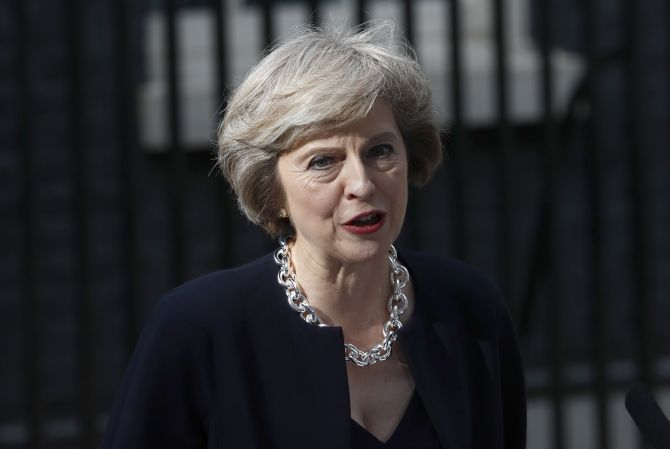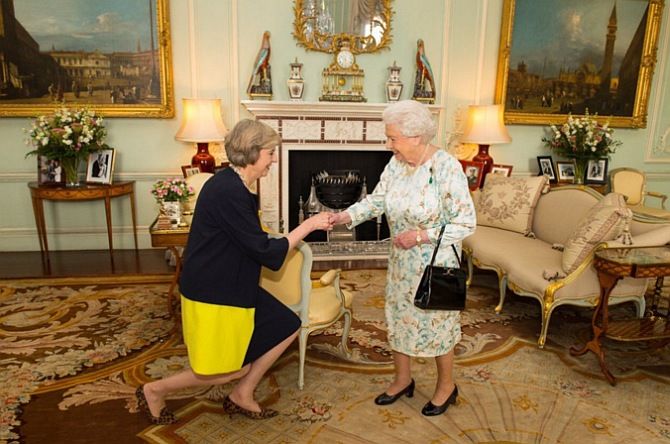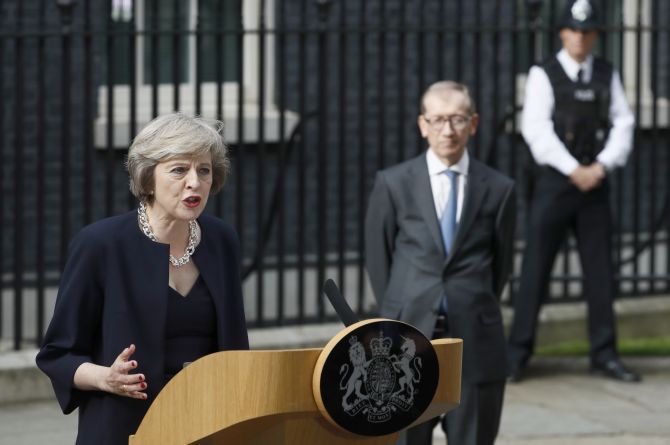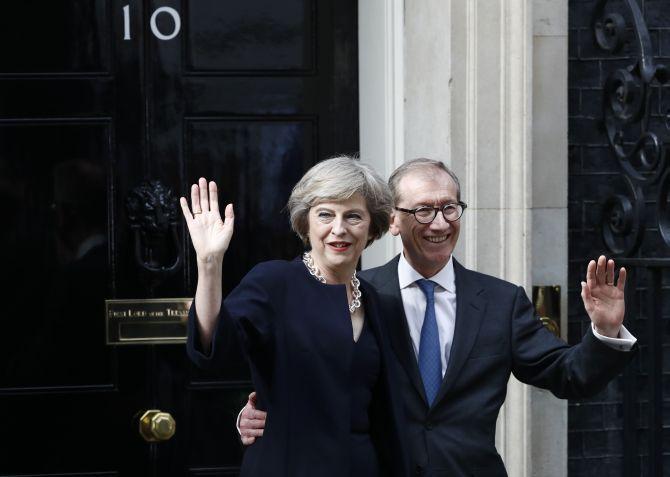Theresa May on Wednesday became Britain's second woman prime minister after Margaret Thatcher, vowing to forge "a bold new positive role" for the United Kingdom in the world post-Brexit.

May, 59, took charge as the prime minister of Britain after she had her audience with Queen Elizabeth II at Buckingham Palace.
She arrived at Downing Street with husband Philip May to address the world's media waiting since her predecessor, David Cameron, departed just over an hour earlier.
"In David Cameron, I follow in the footsteps of a great, modern prime minister... he led a one-nation government and it is in that spirit I also plan to lead," she said in her first speech as PM, wearing a black and yellow coat and her trademark leopard print kitten-heel shoes.
"We face a time of great national change... we will rise to the challenge and together we will build a better Britain," she added, in reference to Britain's recent vote to leave the European Union that brought her to power.

She stressed her determination to preserve the union between England, Scotland, Wales and Northern Ireland, and said she would rise to the challenge of negotiating exit from the EU and "forge a bold new positive role for Britain in the world".
May becomes the second-ever female prime minister of Britain and the 13th prime minister to be officially appointed by the Queen.
She addressed the working classes directly, saying she would give them more control and put "social justice" at the heart of her government.
May also made a reference to the Conservative party's complete name, which is the Conservative Unionist Party, saying the word "unionist" was very important to her as it highlights the "precious, precious bond" between all parts of the United Kingdom.

"I want to build a country that works for everyone," she said.
Earlier, Cameron wished May well in his final speech as PM, saying he was proud that for the "second time in British history" the Prime Minister will be a woman and "once again a Conservative" -- in reference to Margaret Thatcher as the first female PM of Britain.
He also made a reference to the reason behind his untimely resignation, which came about as a result of the Brexit vote in the June 23 referendum.
"I believe Theresa will provide strong and stable leadership in fulfilling the Conservative manifesto on which we were elected, and I wish her well in negotiating the best possible terms for Britain’s exit from the European Union," he said in his farewell speech as he departed from Downing Street.

He had announced he would be stepping down from the post the day of the Brexit results but had to eventually make his own exit from Downing Street much sooner than the September 9 time-line set by the Conservative party for its leadership contest.
May had emerged as an unchallenged candidate after her only opponent, Andrea Leadsom, withdrew from the race on Monday.
May has been in British Parliament as MP for Maidenhead since 1997 and under outgoing Prime Minister David Cameron, she has been the longest-serving home secretary for Britain in 50 years.
She has worked with the Bank of England in the past before entering front-line politics.










